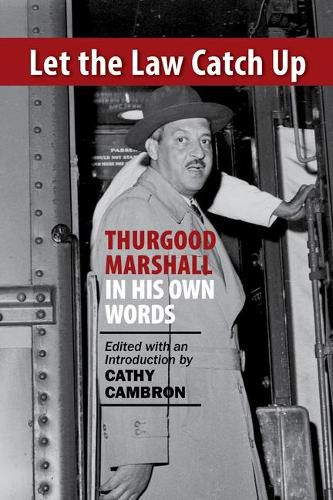Readings Newsletter
Become a Readings Member to make your shopping experience even easier.
Sign in or sign up for free!
You’re not far away from qualifying for FREE standard shipping within Australia
You’ve qualified for FREE standard shipping within Australia
The cart is loading…






In January 2021, as Kamala Harris was sworn in as vice president of the United States, she lay her hand on a Bible that had belonged to her hero Thurgood Marshall. A courageous and brilliant lawyer and jurist, Marshall won the 1954 Supreme Court ruling in Brown v. Board of Education, ending legal racial segregation in America–a significant step in the continuing struggle of Black Americans for equal treatment in their own country. In 1967, Marshall became the first Black Supreme Court justice, and he continues to inspire decades after his death.This accessible collection of Marshall’s own words spans his entire career, from his fearless advocacy with the National Association for the Advancement of Colored People (NAACP) in the 1940s and 1950s, to his arguments as the first Black solicitor general under LBJ and his Supreme Court opinions and dissents. Introductions to the writings provide historical and legal context.
$9.00 standard shipping within Australia
FREE standard shipping within Australia for orders over $100.00
Express & International shipping calculated at checkout
In January 2021, as Kamala Harris was sworn in as vice president of the United States, she lay her hand on a Bible that had belonged to her hero Thurgood Marshall. A courageous and brilliant lawyer and jurist, Marshall won the 1954 Supreme Court ruling in Brown v. Board of Education, ending legal racial segregation in America–a significant step in the continuing struggle of Black Americans for equal treatment in their own country. In 1967, Marshall became the first Black Supreme Court justice, and he continues to inspire decades after his death.This accessible collection of Marshall’s own words spans his entire career, from his fearless advocacy with the National Association for the Advancement of Colored People (NAACP) in the 1940s and 1950s, to his arguments as the first Black solicitor general under LBJ and his Supreme Court opinions and dissents. Introductions to the writings provide historical and legal context.